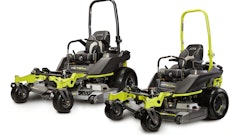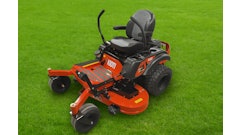Read and understand your owner/operator manual. Mower maintenance begins with a full knowledge of the machine and its safe operating and maintenance procedures. Make sure you read and understand your owner/operator manual before using your machine or performing routine maintenance.
Perform a walk-around inspection of your mower before every use. Inspect all parts and components to confirm proper working condition, and replace any worn or damaged parts before operating. Adjust any loose components. Make sure all safety features are installed and functioning.
Sharpen mower blades when they become dull, no longer providing a clean cut. Dull or damaged mowing blades can greatly reduce the quality of cut your mower can provide. Plus, dull blades increase fuel consumption. How often you sharpen your blades will vary due to consistency of use and mowing conditions. Balance all blades after sharpening to prevent vibration damage to mower deck.
Replace belts that are no longer in proper operating condition. Check belt tension and condition. Belts that are nicked, cut, frayed, thin, warped or twisted will prevent your mower from operating at its full potential.
Check engine oil before each use and change the oil at manufacturer-specified intervals. Making sure your mower has sufficient engine oil is essential to peak performance and engine longevity. Never assume the oil is at its proper level; always check oil levels before each use.
Maintain proper tire pressure for the best mowing results. Properly inflated tires help improve quality and evenness of cut, increase traction, promote longer tire life and help increase fuel efficiency. Inflate to the optimum pressure recommended in your owner’s manual, not to the maximum pressure embossed on the tire.
Inspect your mower’s air filter per manufacturer’s recommendations, and replace annually or when engine begins to lose power. Never attempt to clean an air filter with compressed air. Compressed air can damage the filter and lead to premature engine wear. A dirty filter is more efficient than a brand new one, so avoid the temptation to change the filter too often.
Practice preventive maintenance for a more productive business. You’ll save time and money by taking a few minutes to identify and remedy potential problems before they cause downtime in the field.
Use a fuel stabilizer for top performance. Use a fuel stabilizer year-round to keep fuel fresh and help control detrimental effects of ethanol gasoline.


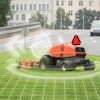
![Gravely Pro Turn Mach One My23 Dsc03139 Edit 1200x800 5b2df79[1]](https://img.greenindustrypros.com/mindful/acbm/workspaces/default/uploads/2025/10/gravely-pro-turn-mach-one-my23-dsc03139-edit-1200x800-5b2df791.BucBnDoN22.jpg?auto=format%2Ccompress&fit=crop&h=100&q=70&w=100)
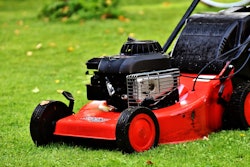
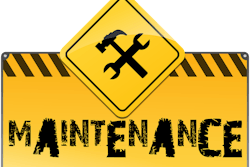
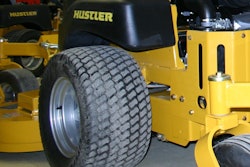




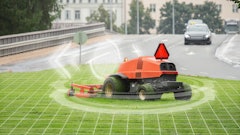
![Gravely Pro Turn Mach One My23 Dsc03139 Edit 1200x800 5b2df79[1]](https://img.greenindustrypros.com/mindful/acbm/workspaces/default/uploads/2025/10/gravely-pro-turn-mach-one-my23-dsc03139-edit-1200x800-5b2df791.BucBnDoN22.jpg?ar=16%3A9&auto=format%2Ccompress&fit=crop&h=135&q=70&w=240)


